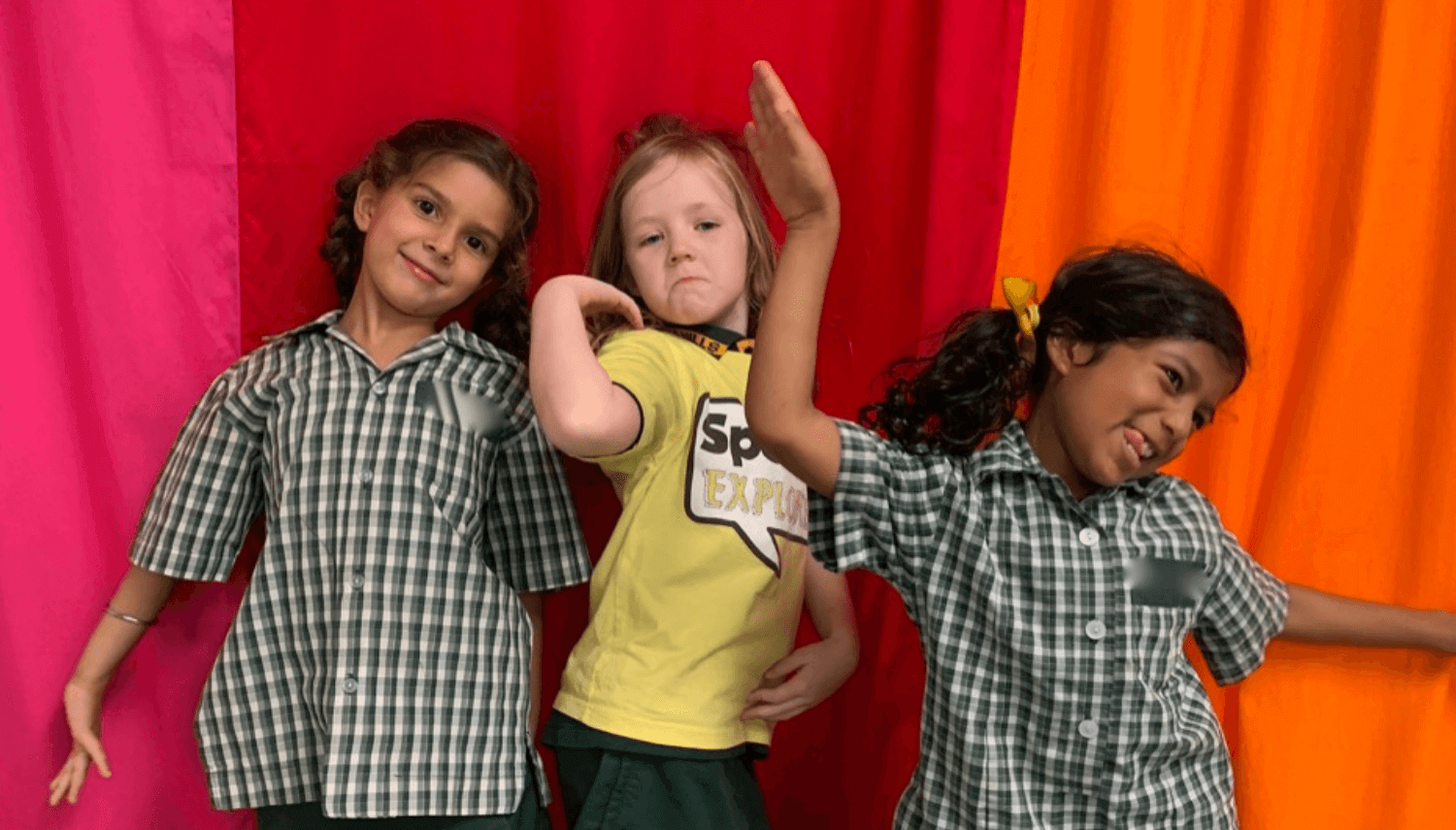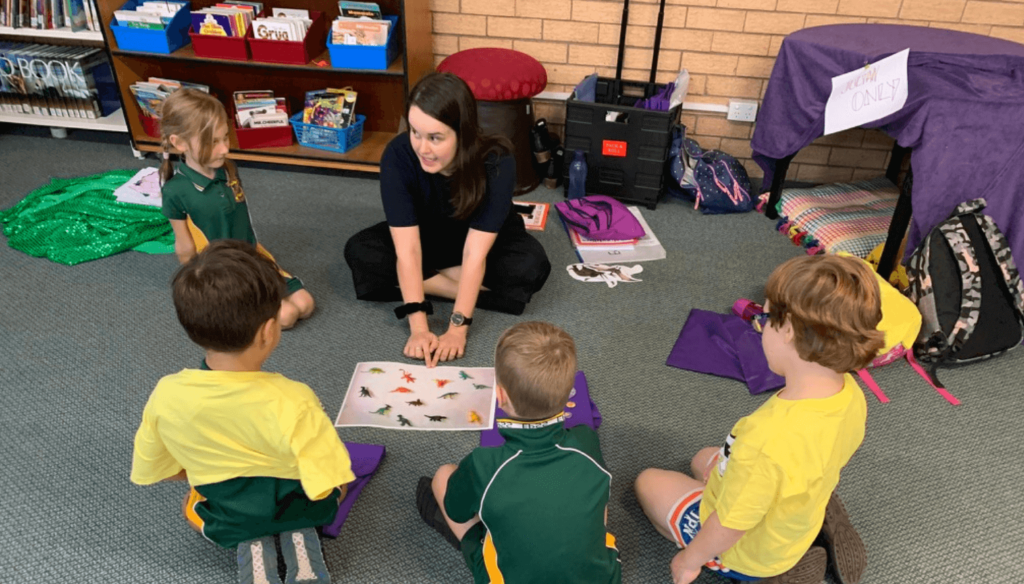
28 Mar How we keep young students engaged
When it comes to engaging preps and grade ones in our Speech and Drama lessons, our mission is to be one with the amazing, playful, sticky, littlest learners – our Explorers.
Step into an Explorers class and you might find the teacher down on the floor, pretending to be a dog or arms outstretched like a rocket ship. Our job is to react to their ridiculous, over-the-top facial expressions and the hilarious and nonsensical things that come out of their young mouths.
The key to engaging with the delightful imaginations of this age group is to play along with them. We consider our influence in the space as the adult in the room – if we’re making animal sounds, that means everyone can make animal sounds! This kind of interaction captures the hearts of Explorers and they embrace and welcome our silliness as they will see us do the same for them.
So how do we engage young students?
At the delightful Explorer age, these young minds are absorbing so much in a day. Everything is a discovery, their imagination is limitless and it can be exhausting! Speak Up teachers embrace the perspective of these little ones while being mindful of the turnover their young minds have.
Hence, there is one factor within a lesson that is truly make or break for this age group – pace.
Managing the pace of the lesson
Pace is crucial in this age group. Fast-paced, quick and fun transitions are key. We must keep them on their toes. Our pace is not working if there are kids wandering about, chatting over the top of us, or getting restless. This is a sign the pace is too slow. If our kids are confused or not in the right spot, this may be a sign that our pace is too fast.
To be able to adjust to the right pace, we must find that sweet spot of moving on from one activity to another after the interest has peaked but right before it drops! We can do that by making transitions into a game.
Exciting transitions
We use imaginative transitions so we don’t lose the children’s attention between activities. We avoid announcing that we are moving on to another activity and simply capture attention for a seamless transition.
👀 We might gasp “Come here quick!” and let them come forward and wonder what’s happening.
🎫 “Here, I have for you your ticket to the underwater museum! Who would like one? Please do not lose or eat your ticket…take it and freeze in an underwater pose, go!”
🌊 “I can see the water coming in!” And we have them take a big deep breath with us as we transition into the next drama activity.
👗 “I must tell you guys something…we have been invited to the Queen’s Palace! Please put on your fanciest costume, you have 5 seconds” And we pretend to put on some fancy clothing together. “Show me a fancy pose! Not fancy enough…more fancy! You can attend, you can attend, we’re here! The Queen is coming, stand up nice and straight in a line” as we head primly into the next drama game.
So you see, there are lots of tricks of the trade in being an early years educator and maintaining good engagement with imaginative little minds for the duration of a lesson.

Maintain an imaginative spark
- We have a sense of excitement – to teach, to share with our class and to watch them share with us! Maintaining a good energy inspires them.
- Pique their curiosity – We aim to make every moment a discovery and a big reveal. Our students will always have a feeling of “what’s next!”
- Always be present with kids – as experienced teachers we know that we disconnect from our students when we retreat to our lesson plan or get distracted with lesson admin like sorting out stickers. A good teacher can make even these tasks imaginative and fun.
Find magic in every moment
A pencil? Wrong. That is in fact a key that unlocks a portal that leads us to a candy land! Just a book? Incorrect. It’s a guide to hunting down the troll that stole all the white board markers. A water bottle? Absolutely not. Don’t you know this is a potion that will turn all of our hair green? There are infinite possibilities as to what can come from a seemingly simple task or object. Imagination equals joy, which in turn allows our little ones to soak up the experience and learn effectively.
There are a few questions you can ask yourself at home to prioritise fun:
- How can I transform this moment?
- Can I turn this into play?
- How can I make them laugh?
- What can I reveal?
- How can I pique their curiosity?
See what you can do at home to find something special at every turn. Play with them, build on their ideas and find the magic in every moment.
~ Miss Caitlin

